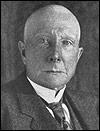(Canada--Canadian Family Physician, July 2000, p. 1469.) Approximately 2 percent of the population has alopecia areata. This autoimmune condition presents as a well-circumscribed oval bald patch or as patches with "exclamation mark" hairs (short hairs with proximal tapering) at the edges of each patch. One half of all cases of alopecia areata resolve spontaneously within one year, but about 10 percent of patients progress to complete baldness and 1 percent lose all body hair, including eyebrows and eyelashes (alopecia universalis). If local treatment of alopecia areata is desired, injections of triamcinolone acetate every four to six weeks for three months may be successful. Topical steroids, minoxidil and anthralin have also been used. If 50 percent or more of the scalp is involved, treatment options include topical immunotherapy, systemic steroids or phototherapy. Patients should be counseled about general health and encouraged to contact support groups as part of the management of this condition.
COPYRIGHT 2000 American Academy of Family Physicians
COPYRIGHT 2001 Gale Group



